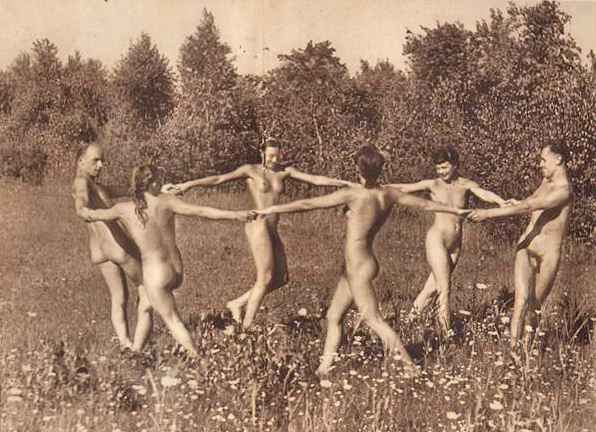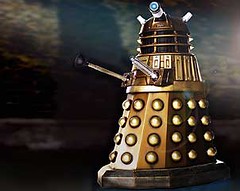Reading group last night, and to Hans's for the first time, where his huge window gave a view of everyone looking tentative as they came down the road, scanning the houses for the number.
 Mother's Milk
Mother's Milk by Edward St Aubyn was my choice, Booker short-listed and the recipient of rave reviews for its scintillating prose which I had pounced on when I scanned the first page in the bookshop. The novel begins with the perspective of five-year-old Robert, holidaying with his parents and his newly-born brother Thomas in the Provencal family house which his grandmother Eleanor has signed over to a New Age cult. As Robert's father Patrick agonises, or with savage wit tries not to agonise, over this disinheritance which symbolises the poor mothering he has always suffered from Eleanor, the child Robert observes the symbiotic attachment between his own mother Mary and his baby brother, and through this 'remembers' and grieves his own once-symbiotic attachment to her, and the traumatic separation of birth.
I said that I found this beginning absolutely brilliant, perhaps the most stunning psychological fiction I had read. Unfortunately, however, I did find that the rest of the novel failed to fulfil this promise. This strikingly innovative narratorial approach is lost as the novel moves into the adult Patrick's perspective (and later into Mary's). The prose never fails to be both excoriating and limpid, the searing observations and biting wit keep coming, and I never stopped relishing them. On this level I had only one real criticism which was that although I could take five-year-old Robert's verbal and intellectual precociousness, I found it unrealistic in Thomas at two (and everyone nodded). I could see that adult Patrick was potentially annoying in his self-absorption, but his wit prevented me from being annoyed with him, which I felt was a great authorial achievement. Finally, however, the novel somehow felt to me strangely empty. There's no real story, but I didn't think this was the problem (nothing much happens, except that the old lady deteriorates over the four August holidays examined in the book and the Provencal house moves into the hands of the cult, and the books consists mainly of people sitting talking or thinking about the situation). The real problem, I felt, was that the novel had no subtext: there are no connections to be made and no meanings to be had other than those spelled out by the characters themselves, and the novel thus ultimately lacks resonance, leaving the reader outside the loop in a very subtle but fundamental way. (Although later Hans's wife Jan said she much prefers it when things are spelled out.)
Sarah said that she more or less agreed: she liked the descriptions and, like me, the beginning. There had been a strange atmosphere in the room as I had been speaking, and now there was a silence. Then Hans broke it by saying: 'I thought it was terrible.' He said he hated the beginning, he didn't believe a word of it: how on earth could a five-year-old mimic the Nanny with a page-long satirical replication of her speech - for god's sake, you'd admire a twenty-year-old for being able to do that! And what about the Nanny: she falls over carrying the baby and breaks his fall and the others are simply angry with her and walk off 'leaving her still talking on the ground!' These were just horrible people!
At which point Trevor, renowned in our group for liking most books, but who had been looking strangest of all, now jumped in. He said he just HATED this book! He said he couldn't stand the people. He said, what is this upper-class man doing whinging about his inheritance - he's a barrister for god's sake, and he (Trevor) had worked for enough barristers to know they were rolling in it!
He was very worked up. Nothing any of us could say could change his mind - that the loss of the house is a symbol of Eleanor's unconcern with which Patrick has been battling emotionally all his life (as Patrick indeed spells out in the way I find unsatisfying): Trevor thought he should simply get a grip. He said he couldn't stand the precocious children, or the way Patrick and Mary wanted in this way to make them better than anybody else's children, and look what a bad mother Mary was, wrapped up in Thomas to that extent and spoiling him. But, we said, isn't it (once again) spelled out that this is a tragic pattern: by consciously trying to avoid for their children their own bad mothering, Mary and Patrick are, ironically, repeating the patterns, Mary by overcompensation with Thomas, Patrick by hot-housing Robert intellectually and thus denying him his true childhood.
Trevor would have none of it, and Jenny joined in with her own objections: if Patrick was so resentful of his mother why did he keep going along with her wishes, executing the handing over of the house etc, - and what was wrong with her, too, the way she let herself rot away more or less wilfully? Why didn't they just get her sectioned? Clare and I said, but the point is that people get locked into these emotional patterns in which rationality has no play, as exemplified by the almost final words of the novel shouted with tragic triumph by the infant Thomas: 'Do nothing!'
All this time Doug had been quiet, and John who knew that Doug had liked the book unreservedly asked him to say why. He said that he just LOVED it - its observations, its wit, which had made him laugh out loud, and he had no problem whatever with the seemingly unrealistic precociousness of the children, as he hadn't read it as naturalistic. To strong agreement from John, he said that any novel which begins with a description of birth from the baby's point of view has to be taken on a non-realistic level, and once you do this the whole novel novel takes off and you lose all those rational objections.
However, Trevor went on chunnering, and when it emerged that St Aubyn's series of novels about this family was autobiographical, he cried in triumph: 'I knew it! That author is just having a self-centred moan!' As we walked down the road afterwards he continued his theme. We got to the corner where we had to part. 'Well, I do know the house is only a symbol of his mother not loving him,' he said, conciliatory. 'But then when you think of all the problems in the world today: people homeless, refugees wearing rags. I still hate that bloody book!'
Our archived discussions can be found
here, and a list of all the books we have discussed
here.
 The last few days have been crammed with activity - no time for blogging - around the 24:7 production of The Processing Room. I've been working on the image, which meant a photoshoot, and then my laboured and untutored efforts on Photoshop, and finally an SOS email to artist Ben White, who designed my website, and who now shamed me by flashing up double-quick various colour versions for me to choose from. In the end we chose ethereal blue - I'm calling the play 'an unearthly comedy' - in spite of my life-long belief that only red or yellow leaflets get picked up. (When we come to design the leaflet, we'll probably add some touches of red.)
The last few days have been crammed with activity - no time for blogging - around the 24:7 production of The Processing Room. I've been working on the image, which meant a photoshoot, and then my laboured and untutored efforts on Photoshop, and finally an SOS email to artist Ben White, who designed my website, and who now shamed me by flashing up double-quick various colour versions for me to choose from. In the end we chose ethereal blue - I'm calling the play 'an unearthly comedy' - in spite of my life-long belief that only red or yellow leaflets get picked up. (When we come to design the leaflet, we'll probably add some touches of red.)































